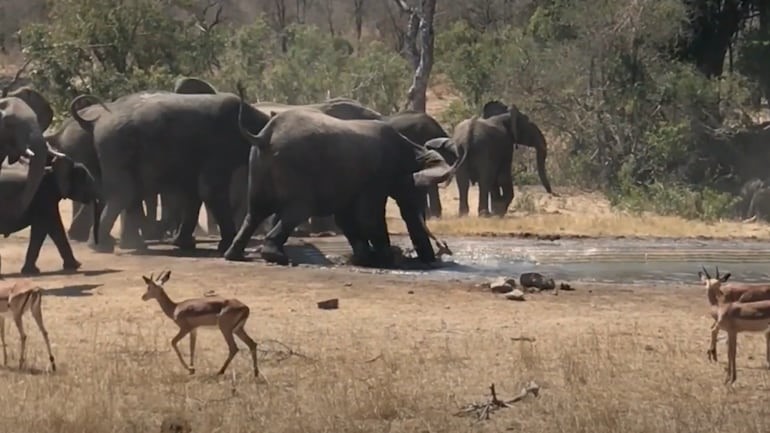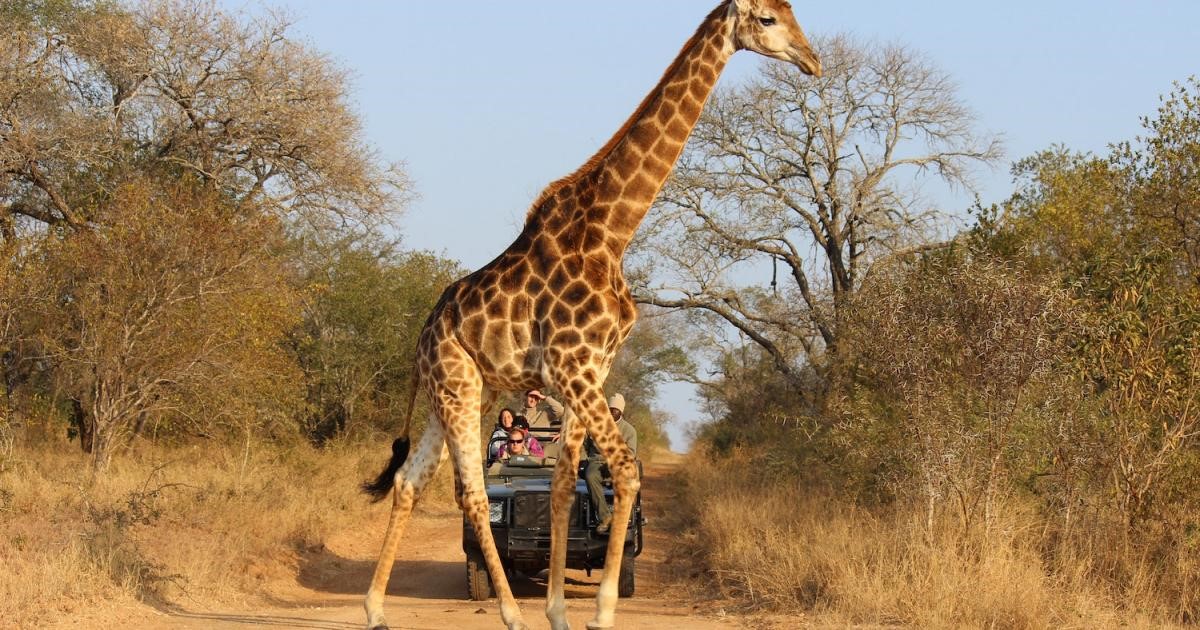Animal Poaching is an illegal international trade of hunting animals to satisfy a demand for different variety goods. While poaching is a global issue, there’s plenty that you can do on a daily basis that do support lessen this trade. See if there are some plain adjustments you do make to your everyday life, like shopping at various stores or signing petitions or pledge to make an influence on the universe of illegal animal trade.
Contents
Extraordinary Ways to Stop Poaching
Engage the public. Poaching is basically stopped by law enforcement centres. However, the public require to be aware on the significance of the wild animals they have and why poaching is not good for their economy purpose.
In doing so, they will do take action against poaching and report any incident of poaching, they will also stay away from wild animal zone. Additionally, in educating the human, the myths about the religious, medical, and aphrodisiac uses of animal parts will be dismissed.
Recruit more wildlife scouts. To save the animals, more wildlife scouts and rangers want to be recruited. It is a source of income for them and they will assist protect endangered animals.
Make tougher laws. The legal systems are in place and they ban the practices. However, poaching still going on, meaning the law require to be toughened. More things to be done in that front, to limit the demand and trade of animal chunks and the buying and selling of wildlife as pets. Toughening the laws also signify that harsher penalties will be given out to poachers and for other wildlife-connected crimes, saving more animals.
Give the animals a sanctuary. Some animals are on the edge of extinction and can only be saved at sanctuaries. The same must be done to more animals, and their populations will do expand.
Zoning (Demarcate land for the wild animals). More requirements to be done to outline where wildlife land starts and ends. In doing so, humans will not encroach into such land for agricultural land, construction, and settlement. Those found inside such lands must be treated as poachers, regardless of their reasons when entering, and absorb the lenghten extent of the law.
Put more trackers and sensors in the wild. Undetectable and Harmless trackers require to be utilized in wildlife tracking, to authorize those at the control rooms to have accurate data on the number of the animals, their location, and any threat that probably be upon them.
It is an easy way of controlling illegal wildlife activities, poaching, and logging without having to guard stay with the animals in the wild.
Banned the purchase and sale of animal parts and products
Outlawing the selling and buying of wildlife animal chunks, especially in animal markets can efficiently reduce poaching. If the animal chunks are banned, few people would go for them and a majority of those in the business will naturally close down. Ultimately, it will lessen the number of animals being killed for their chunks.
Making Informed Purchases
Purchase products made with sustainable materials. Shop carefully if you’re on the shop for art, jewelry, or anything else that could be produce with poached animal goods, like rhinoceros horns, ivory, rare shells, and tiger pelts. Ask the shopkeeper in kindly manner where the product in question was produced, and if the original nation permitted it to be sold. A reputable seller in humble way tell you every information, and likely won’t be selling poached goods in any manner.
Stop buying goods made with animal-sourced hunting and poaching materials. Ignore products that are crafted with ivory, sea turtle shell, shahtoosh fabric, and wild cat furs. These materials are illegal in a lot of nations, and support develop a product demand that ultimately leads to poaching. Instead, purchasing should be shut down, as won’t possible to contribute to the poaching industry. For instance, you do purchase an artificial tiger pelt instead of a real one.
Adopt local pets instead of tropical ones. Don’t purchase tropical parrots, pigeons or rare animals that aren’t pretty considered pets, like monkeys or apes. Purchasing these animals develops a demand, which causes these live animals to be forcefully eliminated from their natural habitat. Instead, adopt a pet from local animal shelter instead.
Debunk false rumors spread about animal products. A lot of cultures faith that some ingredients, like rhinoceros horn, can heal a lot of various ailments. If you see buds or family considering this type of product, push them in another direction. Remind them that these significant ingredients have no good scientific basis and only add on to the poaching world.

Purchase merchandise from organizations that fight poaching. Visit the website of different anti-poaching teams and see how everyone do make a difference. Some sites let you symbolically adopt a wild animal, while others let you donate dollars to specific issues, like coral reef damage. You do always purchase regular merchandise, like T-shirts, which can support the organization.
Offering Your Time and Money
Donate to places that fight poaching on a universal scale. Visit the website of various anti-poaching groups, like some International Foundations really works well. These groups cover protect the habitats of poached animals and support rangers who patrol those zones. You don’t require to offer a lot of money—even small amounts, like a dollar or 3 do make a difference.
Give cash to organizations that actively explore for and stop poachers. Forest guards go out of their route to protect and survey the habitats of commonly poached animals, like elephants and tigers. You can make a difference by donating a few money to these companies that assist these individuals.
Hold a fundraiser devoted to anti-poaching groups. Get together with some buds and plan an event or drive where persons can donate to the organization of your choice. If possible, reach out to a wildlife sanctuary and local conservation and see if they’d be interested in helping out at your event. Once you’ve settled on the information, advertise your fundraiser online and on signs, so people understand when to show up.
Volunteer with anti-poaching groups. Apply to work as a guard or other kind of volunteer. If you’re really devoted to the cause, you may be able to travel to more affected zones, where you can defend and protect the local wildlife from poaching.
Providing Legal Support
Take a stand to full stop poaching by signing a pledge. Pledges are little bit different than petitions—with pledges, you’re making a commitment and promise to yourself, rather than to a specific organization. Submit your contact information and name to an anti-poaching advocacy team, so you do stay informed on how you do make a difference to animals world.
Various Causes of Poaching
Highly-priced and valued animal pets, parts, and products
The illegal wildlife market is a multibillion-dollar zone, and for this reason, there are union and wildlife regulation officials as well as top government that profit from the illegal trade.
Unproven medical, religious, and aphrodisiac values
Some animals have been hunted for religious grounds and religious ritual objects like the ivory, teeth, skin, feathers, tails, horns, fur, heads, hooves, and so on. Some Tibetan monks, for instance, have been familiar to hunt rare creatures for their religious obligations.
Food and exotic dishes for the elite
Some wild animals like the Hippos, Tigers, Zebras, Giraffe, Elephants, and Gazelles are killed for their meat, traditionally denoted to as bush meat. The meat of these animals including apes are a delicacy in certain zones of Africa and whales in japan.
Organized criminal networks
Some animals are catched alive so that they can be kept by the criminal team to sold as pets. The shark, for instance, has no known natural predator, except humans.
Habitat loss, logging, and expansion of human settlement areas
The total human population progress larger by the day, pushing people to conquer land set out for wild animals. In the procedure, the animals are killed so that human cells can get bigger their cities, practice agriculture, develop roads, and settle.
The damage of animal habitats causes more animals to hungry and are killed when they attack livestock or invade agricultural land.

Devastating Effects of Poaching
It leads to extinction
Poaching is the key factor that certain animals are today considered extinct while others signify as endangered species. The African elephant, for instance, has been killed in bigger ratio and over 100,000 were killed between 2014 and 2017 for their parts specially ivory.
The animals suffer
Most animals want to fly, space to roam, and swing from branches. When they are captivated, such benefit are taken and the animals tend not to survive in suitcases, cages, boxes or sacks.
If they do survive, they suffer in their unnatural and new living situations. When humans invade their land, the animals tend to live in unnatural habitats, making it tough for the animals to survive.
Decreased tourist action
Travellors visit some countries for their variety of wild animals. If they reduce in number or go extinct, there probably be no more tourism and as such, the economies that depend on tourism will start to crumble.




